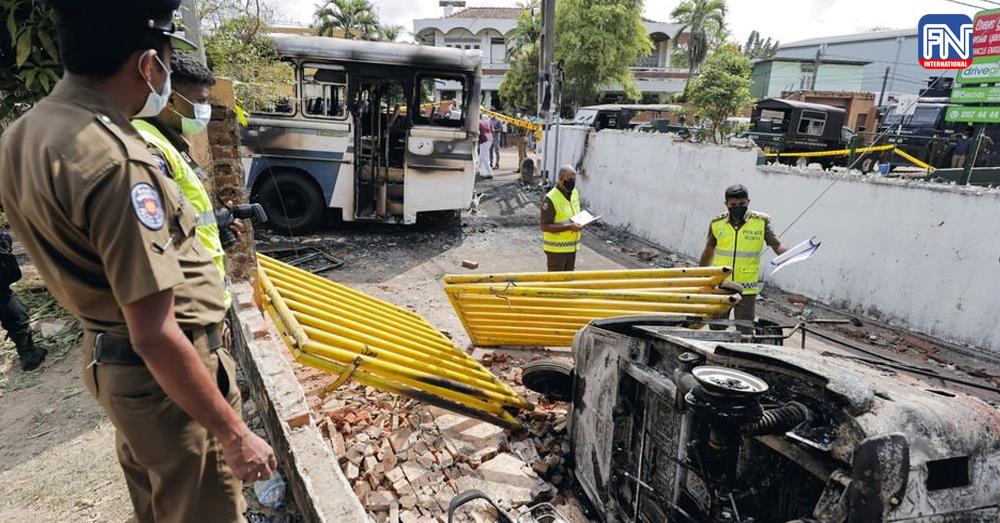COLOMBO, April 2 (Reuters) - Police stood outside petrol stations in Sri Lanka's capital city Colombo and shops slowly opened on Saturday - the first day after a state of emergency was declared to tackle growing unrest amid an unprecedented economic crisis.
In an order late on Friday, President Gotabaya Rajapaksa invoked tough laws that allow the military to arrest and detain suspects without warrants. The state of emergency was necessary to protect public order and to maintain essential supplies and services, he said in a proclamation.
Angered by shortages of fuel and other essential items, hundreds of protesters on Thursday clashed with police and the military outside Rajapaksa's residence as they called for his ouster and torched several police and army vehicles.
Police arrested 53 people and then imposed a curfew in and around Colombo on Friday to contain other sporadic protests.
Reacting to the state of emergency, American Ambassador to Sri Lanka Julie Chung said: "Sri Lankans have a right to protest peacefully - essential for democratic expression."
"I am watching the situation closely, and hope the coming days bring restraint from all sides, as well as much needed economic stability and relief for those suffering," she tweeted.
The island nation of 22 million people is grappling with rolling blackouts for up to 13 hours a day as the government scrambles to secure foreign exchange to pay for fuel imports. read more .
Highlighting the severe shortage of foreign currency, a vessel carrying 5,500 metric tonnes of cooking gas has had to leave Sri Lankan waters after Laugfs Gas (LGGL.CM), the company that ordered it, was unable to procure $4.9 million from local banks to pay for it.
"People are struggling with an acute shortage of cooking gas but how can we help them when there are no dollars? We are stuck," Laugfs Gas Chairman W. H. K. Wegapitiya told Reuters. Police and soldiers have been posted at gas stations since last month to help distribute fuel and maintain calm as thousands of people have lined up.
The ongoing crisis - the result of economic mismanagement by successive governments - has been compounded by the COVID-19 pandemic, which has hit tourism and remittances.
It has also marked a sharp turnaround in fortune for Rajapaksa, who swept into power with a majority win in 2019 promising stability.
The government has said it is seeking a bailout from the International Monetary Fund and is also asking for fresh loans from India and China.
In the first major food aid to the country since Colombo secured a credit line from New Delhi, Indian traders have started loading 40,000 tonnes of rice.





